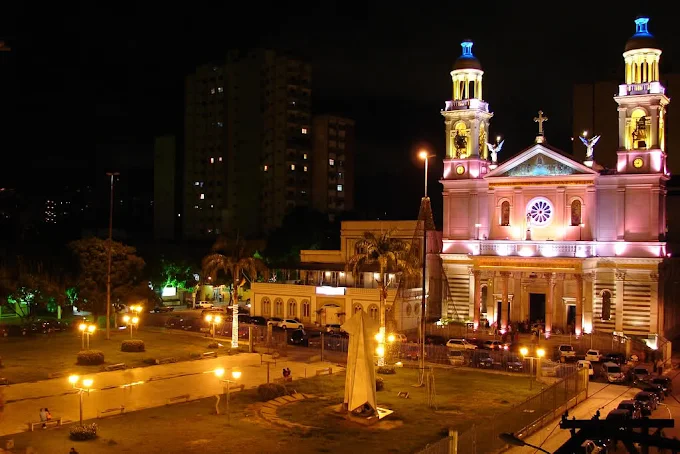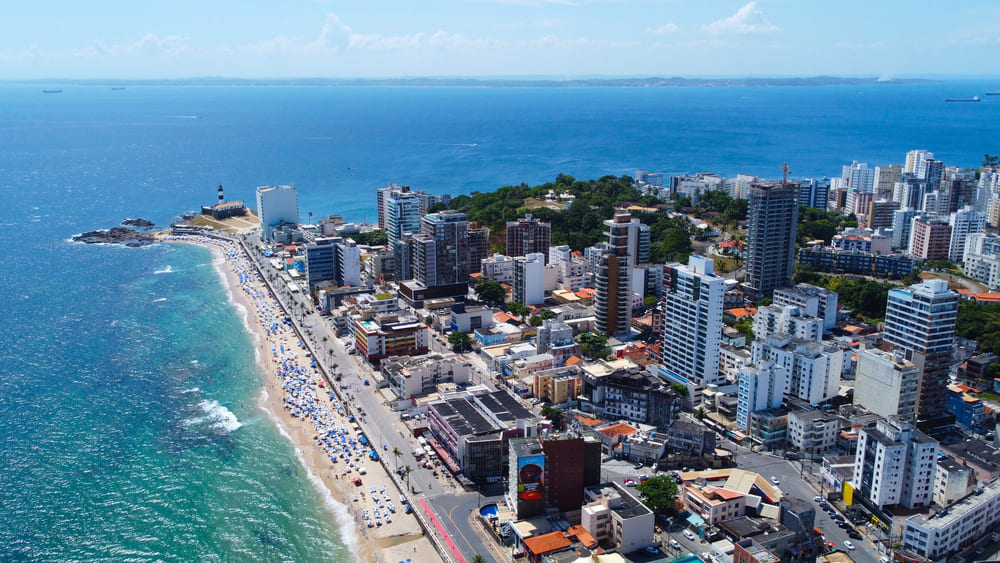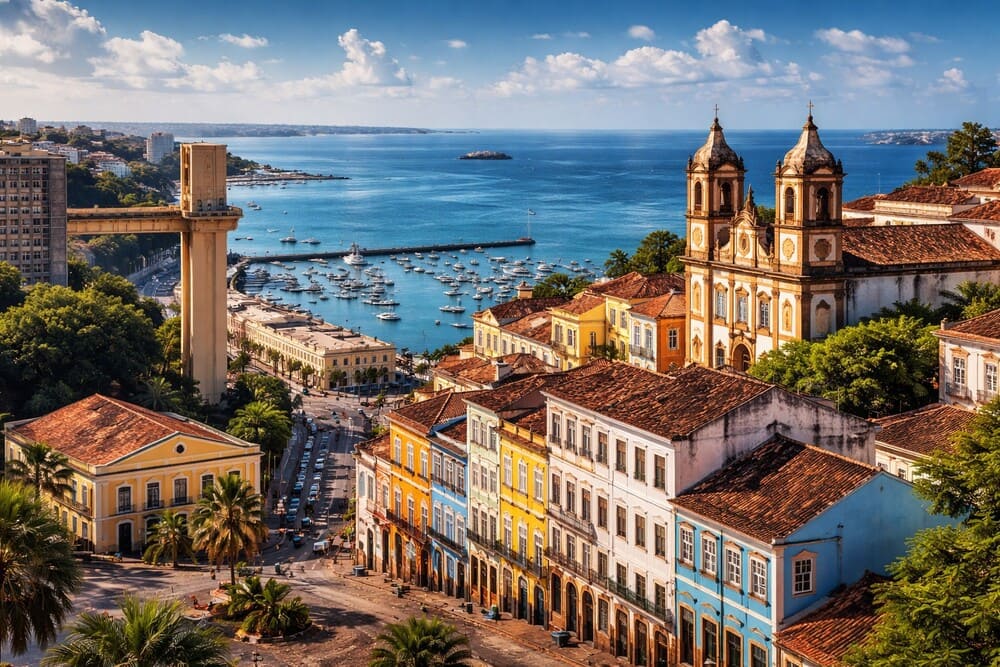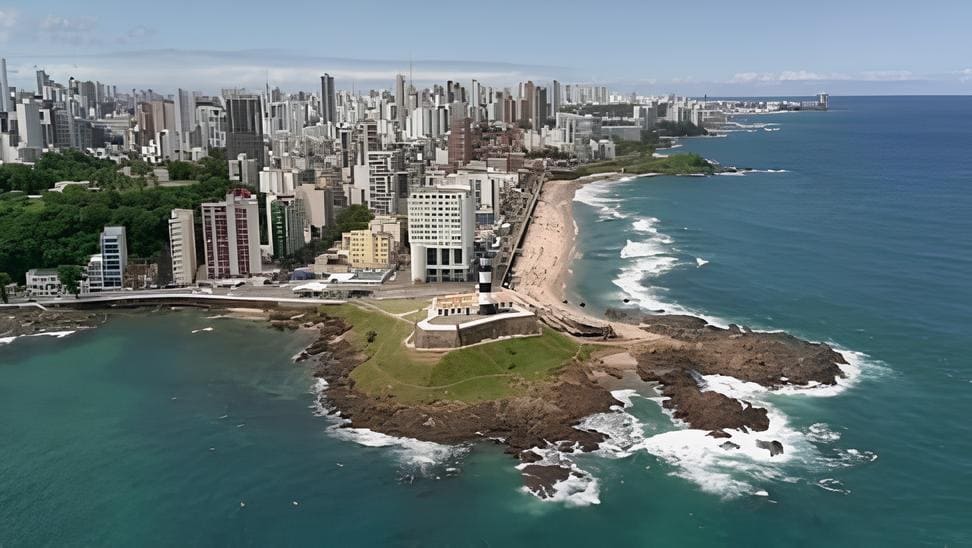
Basílica de Nossa Senhora de Nazaré
Fé, História e Turismo em Belém, Pará No coração de Belém, capital do estado do Pará, está um dos templos religiosos mais imponentes e significativos do Brasil: a Basílica de Nossa Senhora de Nazaré. Este monumento sagrado vai além de sua grandiosa arquitetura — é um dos principais símbolos da fé católica no país e o centro da maior manifestação religiosa do Brasil, o Círio de Nazaré. Visitá-la é mergulhar na história, na cultura e na espiritualidade do Pará, tornando-se uma experiência memorável para turistas e peregrinos. História da Basílica A construção da Basílica de Nossa Senhora de Nazaré teve início em 1909 e foi concluída em 1923. O templo foi erguido no local onde, segundo a tradição, a imagem de Nossa Senhora foi encontrada por um homem chamado Plácido, às margens do igarapé Murutucu. O local é considerado sagrado pelos fiéis. Inspirada na Basílica de São Paulo Fora dos Muros, em Roma, a igreja apresenta estilo neoclássico, com detalhes em mármore de Carrara e vitrais coloridos que retratam cenas bíblicas e episódios da vida da Virgem Maria. A estrutura monumental impressiona não apenas pela beleza, mas também pelo simbolismo espiritual. Em 2006, a Basílica foi elevada à categoria de santuário arquidiocesano e reconhecida pela UNESCO como Patrimônio Cultural Imaterial da Humanidade, junto com o Círio de Nazaré, reforçando sua importância histórica e religiosa. Arquitetura e Interior A arquitetura da Basílica é uma atração à parte. Com fachada simétrica, torres altas e uma grande cúpula central, o templo lembra as grandes igrejas europeias. No interior, o visitante encontra colunas imponentes, altares adornados com ouro, detalhes em mosaico e belíssimos vitrais coloridos. No altar principal está exposta a imagem original de Nossa Senhora de Nazaré, venerada com profunda devoção. Ao redor, encontram-se capelas laterais com esculturas de santos e nichos com representações sagradas que enriquecem ainda mais a atmosfera solene do espaço. A Basílica também abriga um órgão de tubos, utilizado em celebrações solenes, e um museu anexo que preserva relíquias e peças históricas ligadas à devoção mariana na região amazônica. No subsolo, há uma cripta, onde são realizadas celebrações mais íntimas, agregando ainda mais espiritualidade ao local. Para os apreciadores de arte sacra, a visita é uma verdadeira aula de história religiosa. Cada vitral e escultura conta parte da caminhada de fé que moldou a identidade do povo paraense. Círio de Nazaré: A Maior Festa Religiosa do Brasil A Basílica de Nazaré é o centro da maior peregrinação católica do Brasil: o Círio de Nazaré, que acontece anualmente no segundo domingo de outubro. A procissão reúne milhões de devotos de todas as partes do país, em um espetáculo de fé e devoção incomparável. Durante o Círio, a imagem de Nossa Senhora de Nazaré é conduzida da Catedral Metropolitana até a Basílica, em uma procissão de aproximadamente 3,5 km, acompanhada por orações, promessas, hinos e expressões emocionadas. Muitos devotos fazem o trajeto descalços ou carregam objetos simbólicos como forma de agradecimento por graças alcançadas. Além da procissão principal, o Círio inclui diversas outras atividades religiosas e culturais, como a Trasladação, o Círio das Crianças, o Círio Fluvial, a Romaria dos Motociclistas e a Romaria Rodoviária. O evento atrai não apenas fiéis, mas também turistas interessados em vivenciar uma das maiores expressões culturais do Brasil. As festividades do Círio movimentam a cidade por semanas, com uma programação que inclui shows religiosos, exposições, apresentações teatrais e eventos gastronômicos. O evento também aquece a economia local, gerando empregos temporários e impulsionando a produção de itens religiosos e souvenires temáticos. Um Centro de Espiritualidade e Devoção A Basílica de Nazaré é um local de oração, reflexão e contemplação. Diariamente, recebe centenas de visitantes em busca de paz, gratidão e renovação espiritual. Missas são celebradas em diversos horários, e a pastoral está disponível para confissões e acolhimento espiritual. Muitos turistas aproveitam a visita para acender velas, fazer pedidos e contemplar a imagem da Virgem. O silêncio respeitoso e a beleza do ambiente tornam a experiência transformadora, mesmo para quem não segue a fé católica. Além das missas e celebrações litúrgicas, a Basílica também realiza novenas, adoração ao Santíssimo Sacramento e atividades sociais, desempenhando um papel importante na comunidade local. O templo também é ponto de encontro de grupos de oração, romarias e estudos bíblicos. Turismo Religioso e Cultural A Basílica de Nazaré é uma das atrações mais visitadas de Belém, integrando roteiros de turismo religioso e cultural. Sua localização privilegiada no bairro de Nazaré facilita o acesso, e a região conta com infraestrutura turística que inclui restaurantes, hotéis, lojas de artigos religiosos e centros culturais. O local costuma fazer parte de passeios que também incluem outros pontos históricos da cidade, como o Mercado Ver-o-Peso, a Estação das Docas, o Mangal das Garças e o Forte do Presépio. Muitos turistas se encantam com a riqueza cultural de Belém, expressa na religiosidade, na culinária e nas artes locais. Fotógrafos e apaixonados por arquitetura encontram um verdadeiro tesouro na Basílica. Cada detalhe, desde os vitrais até as esculturas, oferece ângulos perfeitos para registros inesquecíveis. O jardim em frente à Basílica, com suas flores bem cuidadas e bancos para descanso, também convida ao relaxamento e à contemplação. Curiosidades e Tradições A imagem de Nossa Senhora de Nazaré, no altar principal, é considerada milagrosa pelos fiéis. Durante o Círio, muitos devotos fazem promessas inusitadas, como carregar objetos simbólicos, vestir roupas temáticas ou percorrer o trajeto de joelhos. A corda que puxa a berlinda na procissão do Círio é cortada em pedaços ao final e guardada como relíquia por muitos devotos. A decoração da Basílica muda conforme o calendário litúrgico, proporcionando uma experiência diferente aos visitantes em cada época do ano. Dicas para Visitantes Se você está planejando visitar a Basílica de Nazaré, aqui vão algumas dicas importantes: Conclusão: Um Patrimônio de Fé e Cultura A Basílica de Nossa Senhora de Nazaré é mais do que uma atração turística — é um símbolo vivo da fé, da cultura e da história do povo paraense. Sua beleza arquitetônica, sua importância religiosa e





